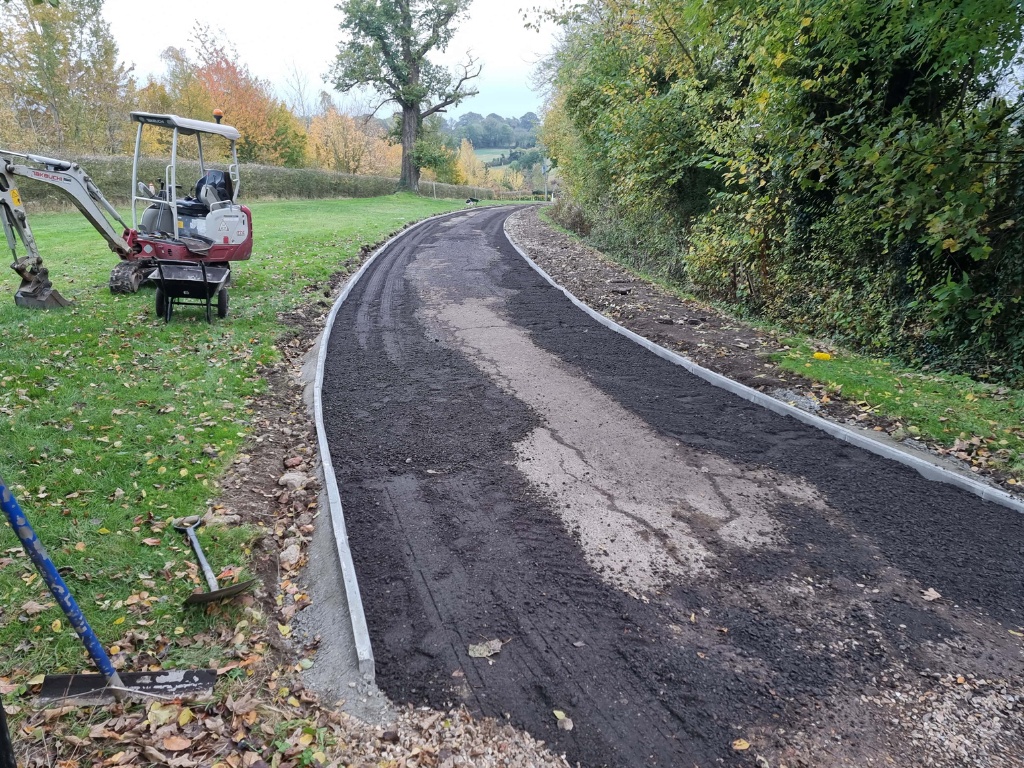What Makes Tarmac Ideal for Agricultural Use?
Introduction
In rural communities like Worlingworth, Suffolk, reliable infrastructure is essential to keeping agricultural operations running smoothly. Whether it’s for tractor access, grain transport, livestock movement, or general farm traffic, the surfaces connecting your land and buildings matter more than you might think. That’s where tarmac proves to be a practical, long-lasting, and cost-effective solution.
At Worlingworth Driveway Solutions, we understand the unique demands of agricultural environments. Tarmac has long been favoured by farmers and landowners not just for its affordability, but for its resilience and minimal upkeep. This article explores why tarmac is such a smart choice for farm roads, yard spaces, and access routes across Suffolk and beyond.
Built for Tough Conditions
Agricultural use means frequent heavy loads, changing weather, and consistent traffic from both machinery and people. Tarmac is particularly suited for these conditions due to its:
- Load-bearing capacity – Handles tractors, trailers, and delivery vehicles without crumbling
- Smooth, solid surface – Ideal for livestock crossings and foot traffic
- Weather resistance – Performs well in rain, frost, and extreme temperature changes
- Dust control – Prevents the dusty conditions associated with gravel or dirt roads
Tarmac’s strength and flexibility make it a dependable surface that stands up to the pressures of daily farm activity.
Easy Maintenance, Long-Term Value
Unlike gravel or concrete, tarmac is relatively easy to maintain. Over time, surfaces can be resealed or patched without the need for complete replacement. This is especially important for busy agricultural sites where downtime is costly.
Benefits include:
- Quick repairs – Damaged sections can be fixed fast with minimal disruption
- Low maintenance demands – Occasional upkeep keeps it looking and performing well
- Long service life – Properly laid tarmac can last for decades under heavy use
For farms that need to prioritise function without compromising on budget or time, these advantages are hard to beat.
Safety and Cleanliness
Farmyards and access roads can quickly become muddy, slippery, or hazardous, especially during wet seasons. Tarmac offers a stable, predictable surface that improves safety for:
- Workers walking or operating machinery
- Animals moving between enclosures
- Vehicles transporting feed, produce, or livestock
It also helps keep yards and storage areas cleaner, reducing the build-up of dirt and debris that can otherwise be dragged into sheds or barns.
Versatile Applications Across the Farm
Tarmac isn’t just for driveways—it’s ideal for a variety of agricultural settings:
- Access roads and farm tracks
- Grain stores and barn entrances
- Livestock handling areas
- Workshop yards and machinery bays
- Vehicle wash zones and water run-off areas
Its flexibility in use and easy integration into existing layouts make it a top choice for both smallholdings and large-scale farms.
Conclusion
When it comes to agricultural use, tarmac delivers performance, practicality, and peace of mind. It’s designed to handle everything from heavy vehicles to unpredictable weather, all while reducing maintenance demands and enhancing on-site safety. For farmers and landowners in Worlingworth and across Suffolk, investing in tarmac surfacing is a smart, long-term solution.
At Worlingworth Driveway Solutions, we specialise in surfacing solutions tailored for rural needs. If you’re looking to upgrade your farm access or yard space, get in touch today—and see how a well-laid tarmac surface can improve both daily operations and long-term durability.
Call us on: 01728 448 691
Click here to find out more about Worlingworth Driveway Solutions
Click here to complete our contact form and see how we can help with your driveway needs

